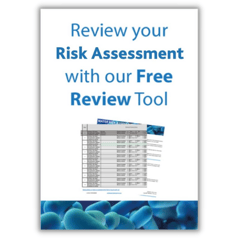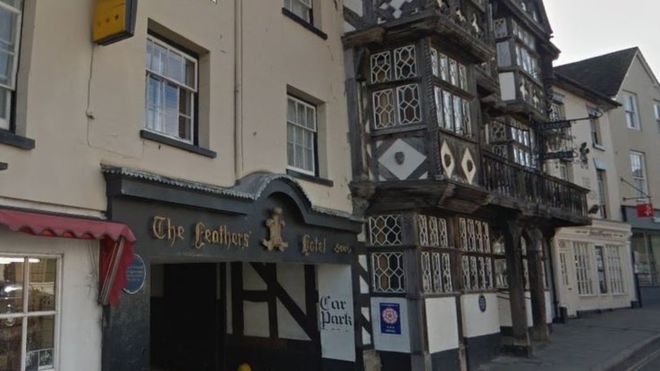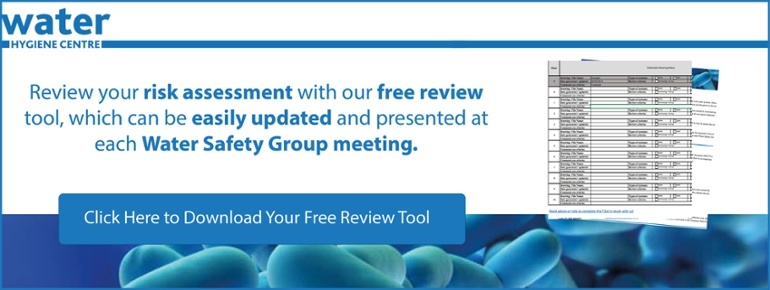Back in 2018 ITV reported on the closure of the Grade II listed Ramada Hall Hotel after Legionella bacteria was found in water samples.
Another article was published in 2017 by the BBC about a fatal Legionella outbreak at the Feathers Hotel* in Ludlow where a 60-year-old hotel guest had died after contracting Legionnaires' disease. Legionella was found again at the same hotel in 2018.
Stay Safe: Understanding Legionella Risk in Hotels
*In August 2018 the Feathers Hotel entered administration due to difficult trading conditions as a result of this outbreak and subsequent investigation by Public Health England (PHE). Since then new owners, Crest Hotels, are investing £500,00 to re-position the property.
Stories like these sadly demonstrate the potentially catastrophic consequences of a failure to properly manage the risk from Legionella bacteria.
What Is Legionnaires' Disease? Facts You Need to Know!
Legionnaires’ Disease is a rare but serious illness caused by bacteria that can be present in domestic water systems. Health & safety legislation requires that businesses and others in control of buildings take action to ensure that the risks to the public, their employees, and others are identified and, where possible, prevented. If prevention is not possible, the level of risk should be controlled to an acceptable limit.
Since you’re reading this article you probably already know the dangers of Legionnaires’ disease; but if you don’t you might like to read our article “Checking in.... time to check out Legionnaires' disease” which talks about Legionella bacteria and what is required to manage the risk in hotels.
Legionella in hospitality
Risk factors include a combination of management, water systems engineering, operation and maintenance, and population vulnerability. The last of these factors is often overlooked.
 Vulnerability is raised with increasing age, with the over 50s being particularly at risk. In the case reported by the BBC, both victims were over 60. It’s also well known that underlying health issues are major risk factors including smoking, respiratory conditions, certain cancers, heart, liver, and kidney problems. The statistics supporting these and other risk factors can be found on the Public Health England website. This is particularly alarming, as the proportion of older people in the population is rising. A report by Eurostat, the statistical office of the European Union, states that over 55’s account for almost 40% of tourist nights away in the EU.
Vulnerability is raised with increasing age, with the over 50s being particularly at risk. In the case reported by the BBC, both victims were over 60. It’s also well known that underlying health issues are major risk factors including smoking, respiratory conditions, certain cancers, heart, liver, and kidney problems. The statistics supporting these and other risk factors can be found on the Public Health England website. This is particularly alarming, as the proportion of older people in the population is rising. A report by Eurostat, the statistical office of the European Union, states that over 55’s account for almost 40% of tourist nights away in the EU.
With almost half of all cases of Legionnaires’ disease in the UK acquired by people traveling abroad or within the country, the tourism, hospitality, and leisure industries need to react to this trend. The European Centre for Disease Prevention and Control (ECDC) has published guidance for hotel managers that includes a list of precautions to take.
Legionella in Hotels - Everything you need to know>
Legionella Risk Assessment
In the UK, legislation requires that the prevention and control scheme should be supported by a suitable and sufficient Legionella risk assessment.
 A properly completed Legionella risk assessment and a well-designed control programme will reduce the likelihood of costly reactive maintenance and unscheduled closures. This is because completing a risk assessment to inform and determine the control measures ensures that the control programme can be tailored to the circumstances. In so doing, the programme will be more effective and more efficient in achieving its goal.
A properly completed Legionella risk assessment and a well-designed control programme will reduce the likelihood of costly reactive maintenance and unscheduled closures. This is because completing a risk assessment to inform and determine the control measures ensures that the control programme can be tailored to the circumstances. In so doing, the programme will be more effective and more efficient in achieving its goal.
Other cases of Legionella and Scalding-related incidents in Hotels include:
- Dundee Hotel fined over Pontiac fever
- Edinburgh Hotel pays compensation over shower scalding death
- Hotel forced to close after two guests contract Legionnaires' disease
- Rose & Crown Hotel Colchester fined for health & safety breaches
- Norfolk Hotel fined £50,000 after elderly guest scalded in bath
If you’d like to know more about controlling the risk of Legionella in your hotel check out our previous articles or get in touch with one of the team.
Legionella Risk Assessments for Hospitality & Leisure - Part 1
Legionella Risk Assessments for Hospitality & Leisure - Part 2
The importance of Legionella training for hotel workers
Top 5 tips to manage the risk of Legionnaires' disease
Feel free to reach out if you have any questions about this blog or if you would like to consult with one of our experts for further advice on water hygiene.
Editors Note: This post was originally published in September 2017 and has been updated for accuracy and comprehensiveness.
© Water Hygiene Centre 2019
Main Image credit: Google Maps









